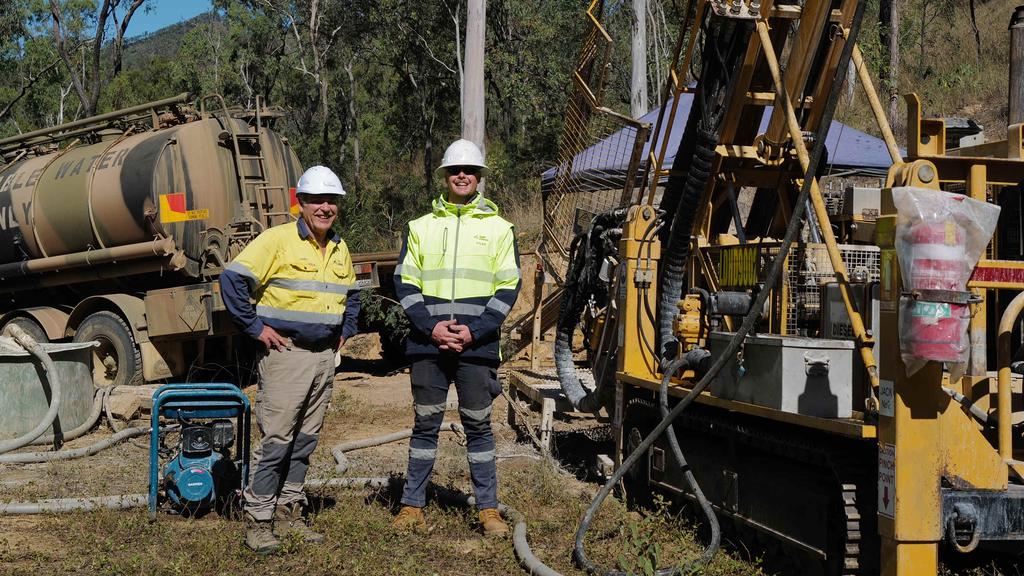
Article by Matthew Cranston, courtesy of The Australian
28.05.2025

Miners and critical minerals producers will be hit by Labor’s unrealised capital gains tax as self-managed superannuation funds will pull millions of dollars out of higher-risk businesses such as exploration companies, warn the chief executives of resources companies and their investors.
Jim Chalmers wants to introduce an unrealised gains tax beginning with superannuation funds worth more than $3m, without indexation, but investors and chief executives have warned that billions of dollars will stop flowing into key companies that employ thousands of people but have volatile valuations.
Treasury secretary Steven Kennedy said on Wednesday that he was aware of resistance to the unrealised gains tax saying that “all tax reform is hard, all tax changes are difficult”.
Dart Mining chief executive James Chirnside warned that self-managed super funds, a big investor in his ASX-listed company, would pull their investment to avoid being taxed on the higher valuation of the business.
“We have heaps of investors from SMSFs,” Mr Chirnside said from his operation south of Gladstone, Queensland.
“Why do people invest in these smaller caps? It’s because they are risking higher returns. If the value goes up and the government starts to tax that, who is going to bother investing in this?
“They will put their money into less risky assets. They won’t invest in a junior exploration company; they will invest in an exchange-traded fund.
“I am completely opposed to (an unrealised gains tax). It’s like the government wants to put a wet blanket over risk appetite.”
Dart Mining is exploring for gold and Mr Chirnside said it relied on capital from self-managed super funds.
“For exploration companies this will be a disaster,” he said.
“We are a mining exploration company that is doing the hard yards and it’s tough raising money.
“Certain parts of the country are dependent on mining and exploration.
“These communities will get destroyed and that’s not an exaggeration. Jobs will be lost.”
Labor’s unrealised gains tax has angered a vast majority of prominent business executives including the bosses of the biggest employers in the country, such as CSL chairman Brian McNamee and Wesfarmers chief executive Rob Scott.
The executive chairman of Lion Selection Group Robin Widdup, who invests in junior miners, said there was no doubt an unrealised capital gains tax would hurt the flow of capital into such an important part of the economy and crimp the expansion of exploration and production.
“If unrealised capital gains tax is introduced people will pull their money and they won’t invest in junior mining companies, they will put it in more liquid assets,” Mr Widdup said.
“The bigger industry funds invest in the bigger mining companies, not these smaller companies.”
Mr Widdup said critical minerals and gas exploration companies trying to set up would also take a hit.
Two chief executives of critical minerals companies said they were concerned about the impact of unrealised capital gains but they feared reprisal from the government if they spoke out because it might jeopardise potential subsidies they might receive.
Other Australian mining investors are concerned that the new tax will hurt critical minerals and damage perceptions of Australia as a safe place to invest.
Ben Cleary, director of resources investor Tribeca Investment Partners, said an unrealised gains tax would hurt the flow of capital into junior miners and critical minerals companies.
“Small caps and in particular small-cap resources always struggle to finance themselves versus larger companies and the proposed unrealised capital gains tax will be detrimental to sentiment,” Mr Cleary said.
“The smallcap resources sector is so important to the Australian economy given the vast majority of exploration dollars is still spent by smaller companies and any hit to sentiment will lead to less discoveries being made and ultimately less mines built and less jobs.
“The difference between pro-business ‘drill, baby, drill’ and ‘mine, baby, mine’ policies in the United States and this unrealised tax in Australia also threatens cross-border capital flows.”
Last week renewable energy infrastructure pioneer Mike Fitzpatrick warned that Anthony Albanese’s energy revolution would suffer a setback if the unrealised gains tax passed parliament because new investment in start-up green-technology companies would stall.
Labor is seeking to use its majority election win and the Greens’ depleted status in parliament to introduce the tax.
New Greens leader Larissa Waters declared this week she saw “no difficulties” with the unrealised gains tax plan despite the Greens having held up the proposal before Labor’s election landslide.
The Reserve Bank’s immediate past governor Philip Lowe and former Treasury secretary Ken Henry said last week that Labor’s unrealised gains tax was bad public policy, however former Treasury official Paul Tilley, and Jeremy Cooper, the lead author of a major report into the super system in 2010, said they supported unrealised capital gains tax.
